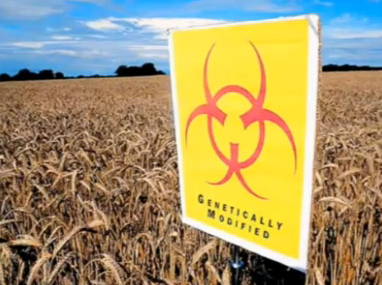
The meaning that has been given to “Race” can be likened to a very effective global branding campaign. Perhaps one of the greatest campaigns of mankind in its effectiveness to divide. The first American settlers used it to market the suppression of the Native Americans, who were here first. Then came slavery. Hitler branded “Jews” as a separate “Race” not worthy of living within a Supremacist White Nation. 9/11 was another effectively devastating brand campaign. “Religious Branding” cuts as deeply and as powerfully as “Racial Branding”. Same beast. While racial propaganda has been around for years, this insidious type of branding continues to keep human beings separate from each other as well as hateful, sad, small, and afraid. Clearly unsustainable.
Racism is a form of branding that continues daily for people of color and various minorities in the “United” States and abroad. Even with Mr. Obama as President, it’s easy to pretend we’ve re-branded ourselves as a nation. But it’s evident we have not when you still see yellow cabs in Manhattan pass up African American families trying to hail a cab in the pouring rain to pick up the white couple just down the block. Well branded racial stereotypes are so burnished into the American UNconcsiousness that they persist right here in one of the greatest cities on earth, amidst the bastions of higher thinking and education. Even our own American Museum of Natural History says, “Modern humans were the first hominids to populate the entire globe, after leaving Africa about 100,000 years ago.” How many white people in Manhattan have spent real time exploring within themselves that they are African and can identify with what it “feels” like? Eminem unfortunately does not live in Manhattan.
Racism is so much a part of our “Human Brand Story” today that we’ve grown numb to how we quietly reinforce our own “Brand Essence” every time we check off our race on a US Census form, or an application for a job, or a school. There is the “Other” box we can always check and fill in “American” or “Human” or “Hot” — whatever calls to us, but building our “Brand” today happens without our agreement. Whether we pretend we’re in a new era where Racism isn’t an issue or we’re the victims or perpetrators of it, Corporate America and the government like to keep us in tidy boxes. Countless millions are spent on marketing and advertising based on demographics, i.e. the color of our skin. This reinforces to people that their skin color means they are different in some fundamental way to others.
While we don’t have an answer to this very complex and deeply rooted brand identity crisis humankind suffers daily, there is room for optimism and inquiry. The good news is our “Brand” perception of ourselves as human beings haven’t been transmuted into our DNA. In other words, we haven’t been around long enough for a human subspecies to arise as a result, so there is a possibility for us all to begin to re-think these issues regardless of the color of our skin and to start to consciously relate to each other as equally amazing individuals in our day to day exchanges. There is the possibility that we human beings can marvel at the beauty of each other’s physical features, cultural heritage, and self-expression, and celebrate our differences, rather than quietly denigrating each other whilst shrouding our communications in inauthentic pleasantries. Then there are the common sense facts we can’t ignore. No biology or science has confirmed that there is any difference between us genetically due to the color of our skin. Two Chinese people can be more genetically different than a Chinese person and a Sudanese person. We all breathe air, bleed blood, eat food, drink water, feel hot, feel cold. We are born and then we die. And all that time in between as human beings we do get the opportunity to create our own “brand story” for ourselves.
We have the opportunity every day to step out and create our individual “Brand” by who we choose to BE, in the face of anything. Whether we are a person of color or not. We all have the same tools in our human arsenal that we can share with each other and the world. WE can BE love, hate, fear, jealousy, anger, compassion, sadness, grief, resentment, embarrassment, success, failure, hilariousness, triumph, bliss, sensuality, or joy, regardless of our color or what anyone thinks of us, even the government or Corporate America. This is our saving grace. We can “Re-Brand” ourselves as individuals at the core of who we are at any given moment.
The beauty of being human is that we have the power to create a world that’s sustainable, where Brand Love and Brand Color peacefully co-exist.

With the new greenwashing legislation happening in the United States and Europe, and the growing number of consumer watchdog groups out there, it’s becoming risky business to say almost anything on your package, but most under fire it seems are the “eco-friendly” and “natural” claims.
Ben & Jerry’s removed the word “natural” from their products because a consumer health advocacy group cited some processed ingredients in their products. BMW made a claim of low emissions and stood by it, but has dealt with the controversy around it because they are only low emissions when compared with other luxury vehicles. They have high emissions when compared to the rest of the auto industry. And consumers continue to watch and pounce at even a whiff of foul play regarding claims. The vegans are even out for blood (obviously not from animals but from corporations). Ecover, the ecological maker of laundry detergent, lost their Vegan rating because an animal rights group in the UK busted them for testing on fleas. Fleas? Really?
Even the smallest false claim, or what corporations consider the tiniest of white lies, can have an enormous impact. The outcome is a cynical public. Where no one believes anything, anymore.
There’s a greenwashing (and now, apparently, even a vegan washing) backlash. All the “good” companies, the ones who have been doing everything possible to be the most eco-conscious, socially responsible and transparent, are now afraid to say what they’re actually doing that’s good on their products or in their advertising for fear of getting it wrong.
So we’ve gone from greenwashing to our newest term, “greenhushing”.
For all the money a company stands to make by earning the right to make a truthful claim on their product or in their ad campaign, there’s far more a company stands to lose and that we all stand to lose when they lie, even just a little.
[youtube]dib2-HBsF08[/youtube]




